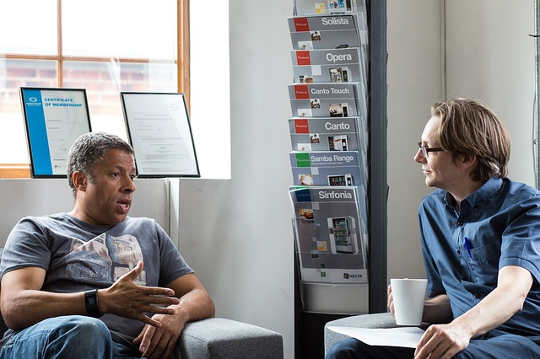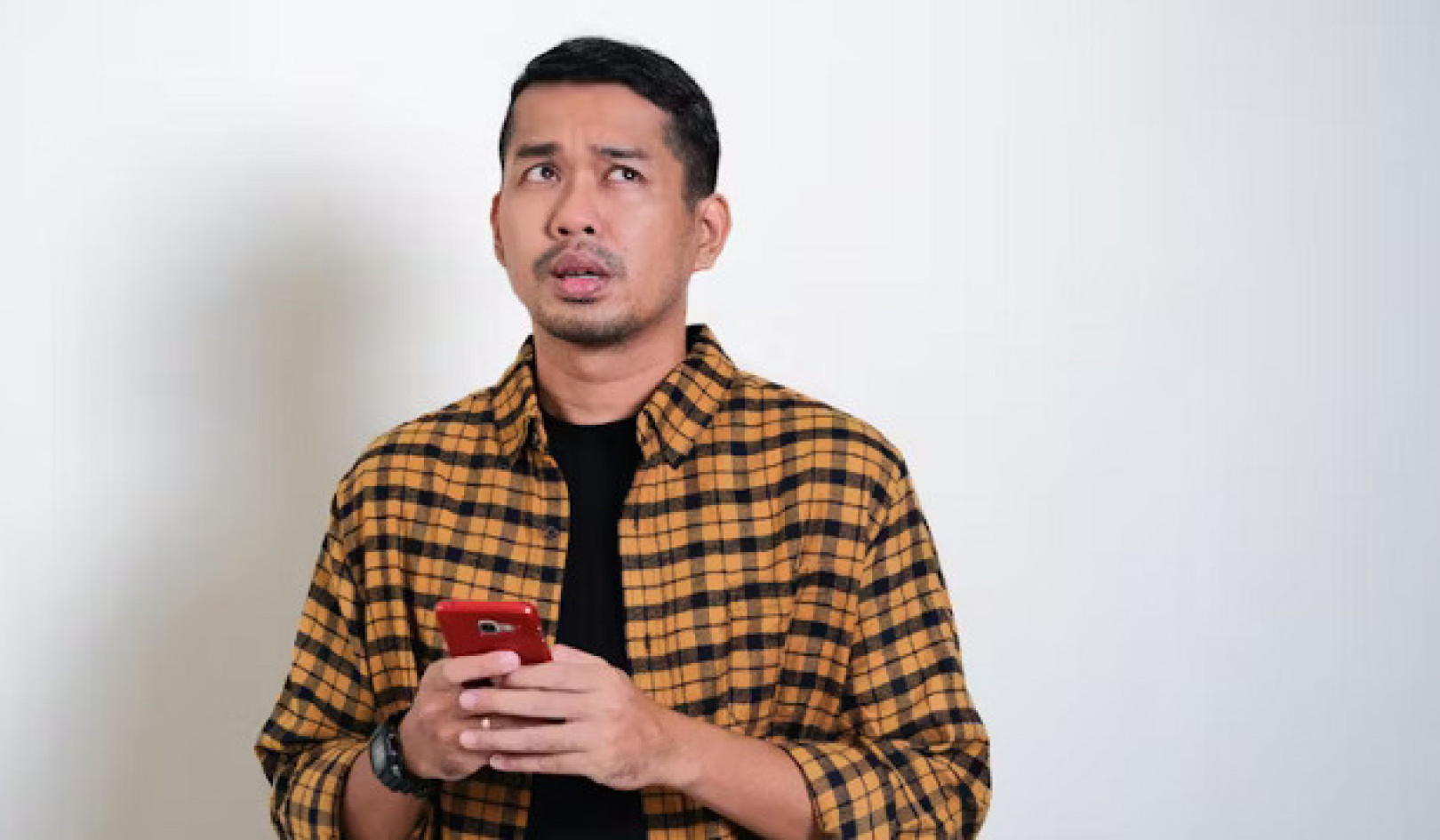 Image by jamesoladujoye from Pixabay
Image by jamesoladujoye from Pixabay
Elliott Jaffa, Ed.D., a behavioral psychologist who conducts "active listening" seminars for businesses and other groups, says, "In reality, very few people really know how to listen. There's more to active listening than sitting back and letting your eardrum collect vibrations. When done properly, it's actually hard work. It's almost like learning another language, but as many truly good listeners have discovered, the rewards are worth it."
A couple of his tips to becoming a better listener are "Stop talking. Silence is the key to listening" and "Send the right signals. Show respect by giving your full attention."
Does this sound familiar? I've experienced it at many a Hollywood cocktail party. You'll be talking with someone and they'll keep looking over your shoulder to see if there's someone more important than you in the room. I, for one, don't particularly want to spend time with this type of person, and most important, I don't want to be this type of person.
Listening Is Active, Not Passive
Listening may seem passive, but it's not; in fact, it's almost the opposite. In many ways, being the listener requires more energy and concentration than being the one who does all the talking.
Think about a time when you really felt "heard" in a conversation. Was the person just sitting there, staring at you with a blank face? Were they looking around the room while you were talking? No. Even if they just let you talk, with no interruptions, you could probably almost feel their attention.
When someone is actively listening to you it's like they are really receiving the energy, the feeling, of what you have to say, and sending it back to you, without saying a word. They may nod their head, or they may smile, but they are fully present with you.
It reminds me of when I was visiting Italy and I would try to understand... I really had to think about what they were saying, not just assume. So I learned that if I just kept my mouth shut and listened, then I would think, 'OK this is what I am translating it to mean' and then I would reply and if they understood me I would think, 'Great, I translated it correctly!' That was the 'aha' moment for me: Sit back, be quiet, don't be so critical, don't presume anything, just listen." -- VERONICA, SALSA DANCER
I'm Talking So Loud, I Can't Hear What You're Saying
 Before I began partner dancing, I didn't know how to really listen. For one thing, I was a chronic interrupter. I meant well, but I was like that annoying kid in class who shoots their hand up as soon as a question comes out of the teacher's mouth: "Me! Me! Pick me!"
Before I began partner dancing, I didn't know how to really listen. For one thing, I was a chronic interrupter. I meant well, but I was like that annoying kid in class who shoots their hand up as soon as a question comes out of the teacher's mouth: "Me! Me! Pick me!"
I didn't mean to be rude; I would just get excited by an idea and feel that I had to blurt it out. It was like I felt that if I didn't get what I had to say out that very second, I would never have another chance.
Or sometimes I would get impatient. I'm a very energetic person. If I were a drink at Starbucks I'd be a double espresso. I'm a fast thinker — my mind works very quickly. Now don't misunderstand me, I'm not saying that I am necessarily a smart thinker, but I'm fast. And sometimes it gets me into trouble. I tend to rush into things — I often speak before I think.
The upside of this aspect of my personality is that I'm very passionate and adventurous. I'm always willing to dive in and try something new (like the Argentine tango, for example). And because I can't sit still — I'm always moving around with a kind of self-generating hyper-energy like one of those little Jack Russell dogs that are constantly jumping up and down — I'm thin.
But there is a downside to having this kind of intense energy. I tend to be impulsive. I'll sometimes commit to things that I later regret, and I can get impatient with people who have a slower energy I'll often be thinking, "OK, let's hurry things along here, let's get to the point already!"
And in the way that relationships always seem to end up providing the perfect conditions to enable you to work on your own character defects, my guy is handsome, intelligent, funny, and a very slow talker. It drives me crazy. It's like the old adage: If you need to learn patience, God gives you long lines.
Reprinted with permission of the publisher,
Jeremy P. Tarcher/Penguin, a member of Penguin Group (USA).
©2011 by Jamie Rose. www.us.PenguinGroup.com.
Article Source
Shut Up & Dance! The Joy of Letting Go of the Lead -- on the Dance Floor and Off
by Jamie Rose.
 Dance changed Jamie's life, and she discovered that she wasn't the only one. Over and over, the women she encountered at dance halls--women from age twenty to ninety_three--told her how falling in love with dance helped them fall in love with life again. The secret? Whereas before they may have worried that if they let go of their grip on things for a moment, everything would fall apart, now they knew that sometimes letting go of the lead is the best way to keep things together"--especially in a relationship. For anyone who has ever marveled at Fred and Ginger up on the silver screen (how could they be so in sync?), SHUT UP AND DANCE shows how to dance their way into a happier, sexier life--even if they never step onto a dance floor.
Dance changed Jamie's life, and she discovered that she wasn't the only one. Over and over, the women she encountered at dance halls--women from age twenty to ninety_three--told her how falling in love with dance helped them fall in love with life again. The secret? Whereas before they may have worried that if they let go of their grip on things for a moment, everything would fall apart, now they knew that sometimes letting go of the lead is the best way to keep things together"--especially in a relationship. For anyone who has ever marveled at Fred and Ginger up on the silver screen (how could they be so in sync?), SHUT UP AND DANCE shows how to dance their way into a happier, sexier life--even if they never step onto a dance floor.
Click here for more info or to order this book on Amazon. Also available as a Kindle edition.
About the Author
 JAMIE ROSE has been a professional actor for more than thirty-five years. Perhaps best known for her regular role as Vickie Gioberti in the 1980s prime-time hit series Falcon Crest,at forty-five, Jamie Rose was an independent, take-charge woman whose career as an actor was going nicely, with frequent roles on hit television shows and in films. But there was one area of her life that wasn't working: her love life. But something magical happened when she signed up for tango lessons: she began to understand that letting someone else take the lead from time to time wasn't giving up, but rather, "letting go." In this wise and funny book, Rose shares with readers the life lessons she's learned from tango and other great partner dance traditions. visit her author website at http://jamierosestudio.com/
JAMIE ROSE has been a professional actor for more than thirty-five years. Perhaps best known for her regular role as Vickie Gioberti in the 1980s prime-time hit series Falcon Crest,at forty-five, Jamie Rose was an independent, take-charge woman whose career as an actor was going nicely, with frequent roles on hit television shows and in films. But there was one area of her life that wasn't working: her love life. But something magical happened when she signed up for tango lessons: she began to understand that letting someone else take the lead from time to time wasn't giving up, but rather, "letting go." In this wise and funny book, Rose shares with readers the life lessons she's learned from tango and other great partner dance traditions. visit her author website at http://jamierosestudio.com/
Related Books
More books on this topic
at InnerSelf Market and Amazon




























